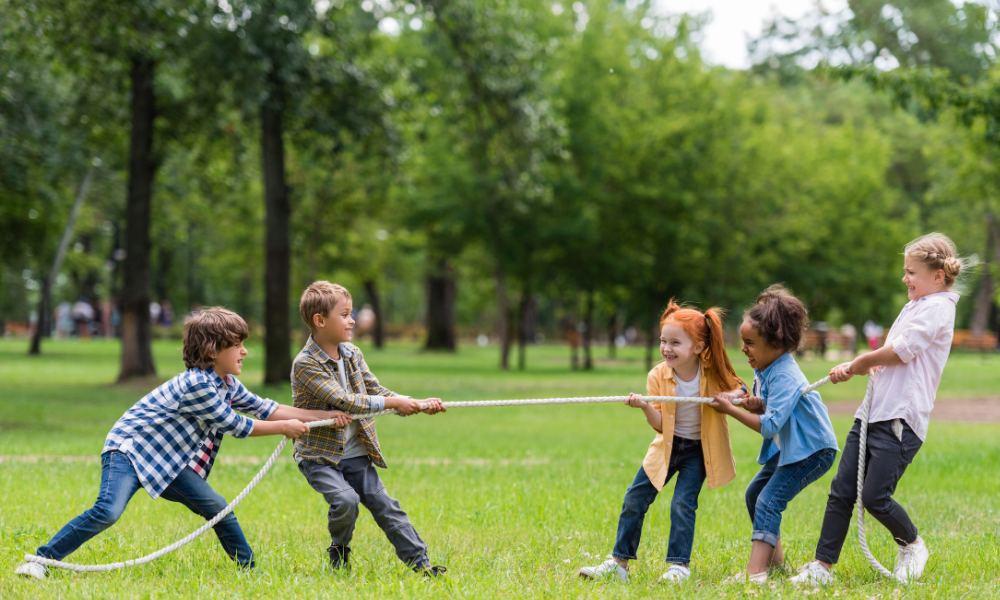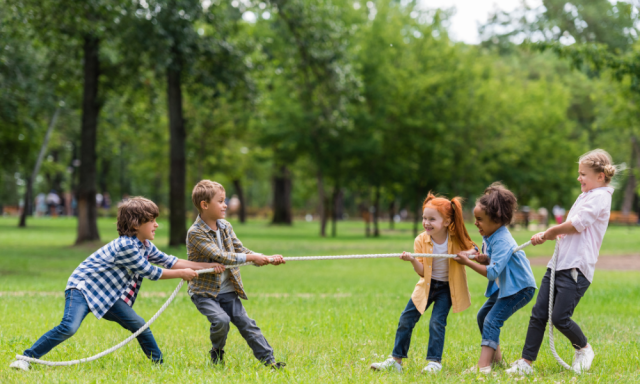
It was the middle of 5th grade when Ashley’s social world shifted. For the past few years, she and her best friend Maya were inseparable. The pair sat with their larger group of friends at lunch, but it was common knowledge that they were besties.
Until Maya started sitting at a different table and declining Ashley’s invitations to hang out. There was no distinct falling out between the girls. Things just started to change.
Maya was getting really into apps and music. Ashley preferred to play the off-line games they usually played together. So without much discussion, the friendship ended, leaving Ashely confused and figuring out where she fits.
Then, school closed and her activities were canceled due to the pandemic. Over the next several months, Ashley lost touch with a few more friends. Her social world shrank to her extended family and neighbors. She felt eager but nervous to get back to in-person school and restart her friendships.
Post Pandemic Transition
In normal times, friendship changes, and struggles intensify during the preteen years. With the enduring pandemic and social distancing, kids’ social lives are in a whole new state of flux. Some friendships bloomed, some stalled, and others have fallen away.
As kids head back to in-person friendships, these changes will come into focus. Social groups will be different, new friendship dynamics will emerge, and that’s okay. For many kids and parents, this offers an opportunity to start fresh.
How can parents support kids as they reenter their post-pandemic social worlds?
To start, it’s important to remember that there is no way to avoid discomfort during this phase or any phase of life. Hurt feelings, friendship loss, mistakes, and social struggles happen as kids grow and learn. But there are ways parents can support their child’s journey.
Listen & Empathize
Now, as much as ever, kids need the empathy and support of their parents. Many kids’ social worlds have turned upside down. Every child needs a trusted adult to listen as they work through challenging emotions and situations. Ideally, this person is supportive, does not give unnecessary advice or get overly emotionally involved. Allowing kids time and space to process their feelings and experiences aloud increases their self-awareness, improves clarity, and reduces anxiety.
Encourage Openness
Young friendships are a bumpy road, filled with change. Parents can help their son or daughter broaden their perspective as they re-enter their social scene. Post-covid friendships may be different, and that’s okay. Friendships and people are always evolving and changing.
Get Involved in Activities
Help your child get involved in activities where they can meet new people. Finding friendships takes time. It helps when kids are in places where they have more opportunities to connect. If your child continues to experience isolation and loneliness, be sure to seek support from a school counselor or other professional.
Manage Your Stress
It’s easy for parents to get caught up in their kids’ emotions. A daughter’s social struggles may trigger a parent’s own painful memories. Author and researcher Brene Brown described the parental experience of witnessing and identifying with a child’s social travails as a “secondary trauma.” When parents stay grounded and calm, they avoid adding additional stress to their child’s struggles.
Making, keeping, and deciding when and how to part with friends is part of every child’s development. Re-entry into in-person friendships may feel like a crash course in all of these skills. It’s a unique opportunity to reconnect with old friends and meet new ones. It’s a time to start fresh and enjoy some much-needed time together. As kids work through changes and challenges, they learn empathy, gain social and self-awareness, and come to understand the ins and outs of friendship… essential skills that support them now and throughout life.











